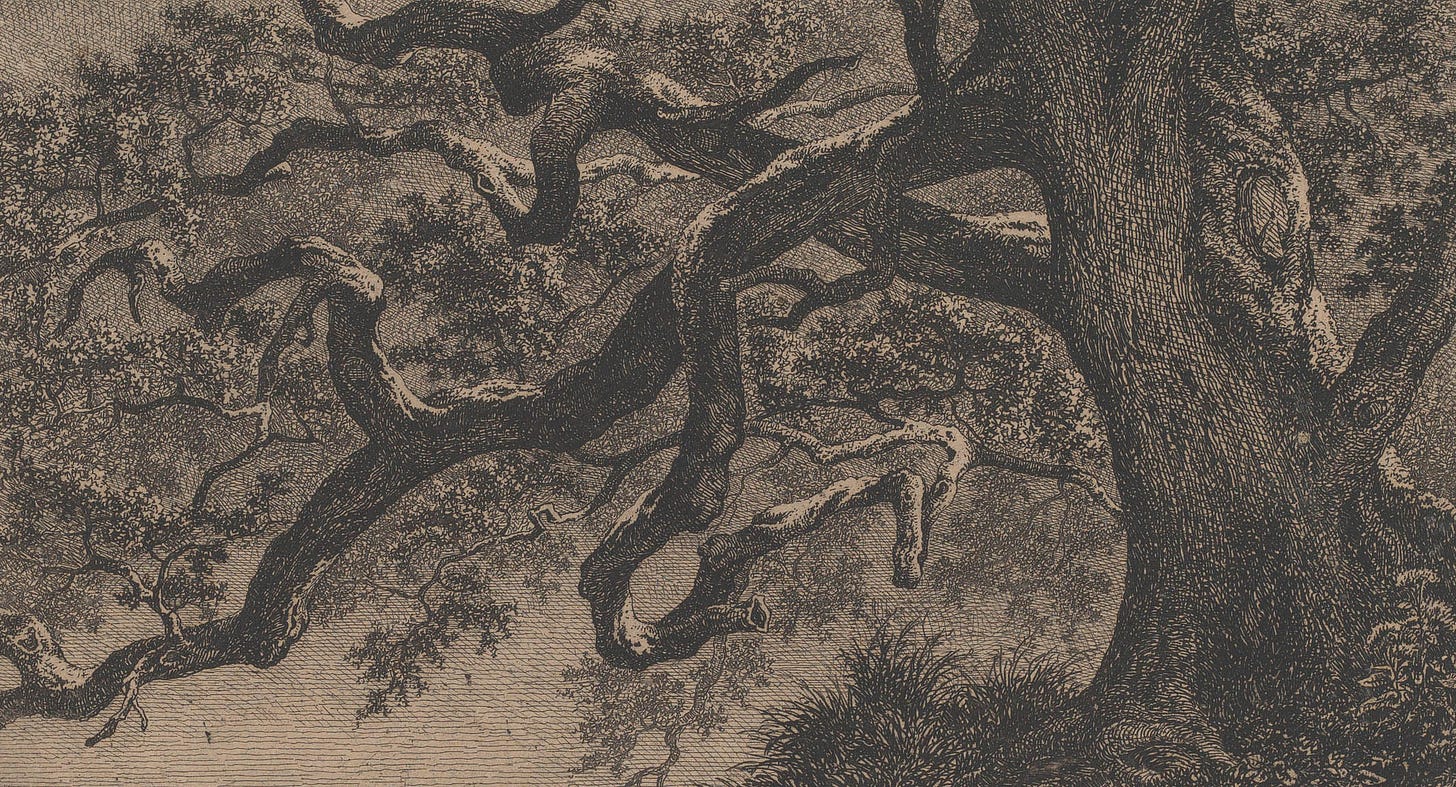Dear friends, there is a tale,
The oak one day said to the reed: You have good reason to curse nature — A simple sparrow for you is a heavy burden. The slightest wind that by chance Makes the face of the water ripple Forces you to lower your head. However my own forehead, Not content to stop the rays of the sun, Braves the effort of the storm. Still if you were born under the shelter of the foliage With which I cover my surroundings, You would not have to suffer so much. I would defend you from the storm. But you are most often born On the damp edges of the realms of the wind. Nature towards you seems to me very unjust. — Your compassion, replied the reed, Part of a good nature; but leaves this worry: The winds are less formidable to me than to you. I bend, and do not break. You have hitherto Against their dreadful blows Resisted without bending your back; But let's stay: One must wait until the evening To see how the day has been. As he said these words, From the end of the horizon came furiously The most terrible of children That the North would have carried so far in its sides. The oak holds firm; the reed bends. The wind redoubles its efforts, And does so well that it uproots Him whose head in heaven was near, And whose feet touched the empire of the dead.
~ ~ ~
I have written tales of oaks before: at the end of Where to Live and the end of That which is unique, breaks. And perhaps others I have forgotten.
Learned fabulists will know that Aesop’s original version of this tale uses an olive tree, although almost all famous European renditions choose an oak. My rendition differs little from a somewhat literal translation of Jean de La Fontaine’s 1668 version.
“One must wait until the evening to see how splendid the day has been.” — I inserted this quote, which came to mind, with splendid removed. It is often attributed to Sophocles. But I can find no source for it. It is somewhat similar to a line in Oedipus Rex, relating that no man should be counted as lucky until after death.
The etching is titled The Branches of an Oak Tree, by Eugène Stanislas Alexandre Bléry, 1836




I imagine & then you just go do. beautiful, simon.. what a mind you have.
These are my main reason for subscribing.